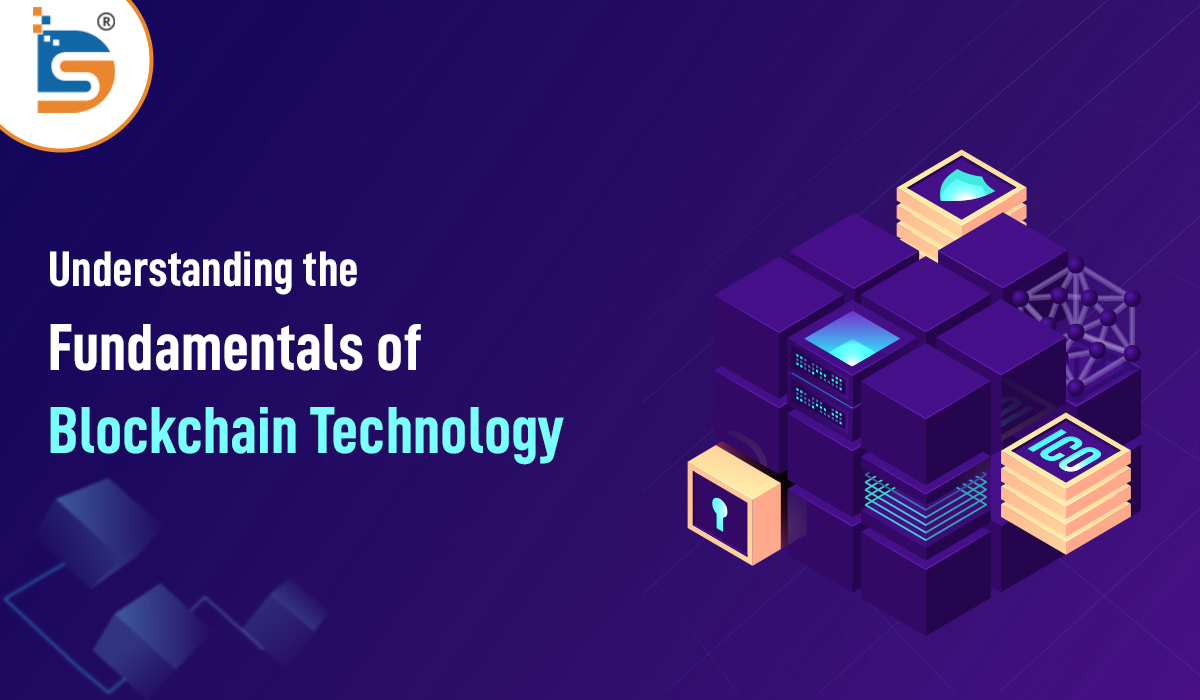Blockchain in Healthcare: Use Cases, Benefits, and Challenges

Strong 8k brings an ultra-HD IPTV experience to your living room and your pocket.
The healthcare industry has always struggled with fragmented data, lack of transparency, and security issues. With rising data breaches and inefficiencies, blockchain is emerging as a technology that promises to tackle these persistent problems. From securing patient data to streamlining processes, blockchain is not just a buzzword anymore; it is actively changing how the healthcare ecosystem functions. In this blog, we will explore blockchain’s use cases in healthcare, its practical benefits, and the real challenges that need attention.
✍️ Blockchain technology is becoming as essential as the internet itself. Read our guide on blockchain future potential to understand why industries are investing heavily in this space.
The Problem of Data Silos and Inefficiencies in Healthcare
Before diving into blockchain, it is crucial to understand why healthcare systems need a transformative solution. Most hospitals, clinics, laboratories, and pharmacies operate with independent data management systems. Medical records are often not interoperable, which leads to repeated tests, misdiagnoses, and treatment delays. In emergencies, lack of accessible records can become life-threatening. On top of that, data security remains a constant threat. Healthcare data breaches have exposed millions of patient records globally, risking privacy and costing healthcare providers significant financial penalties.
Traditional databases are centralised, making them prone to cyberattacks, unauthorised alterations, and single-point failures. Blockchain development services are now being leveraged to address these limitations by offering a decentralised, tamper-proof record-keeping system that can be securely accessed by authorised parties only.
Blockchain Use Cases in Healthcare
1. Electronic Health Records (EHRs) Management
One of the major blockchain use cases in healthcare is the secure and transparent management of Electronic Health Records. With blockchain, patients can own their records and share access with doctors or specialists as needed without fear of alteration or misuse. Every time a record is updated, a cryptographic signature is created on the blockchain. This ensures that data cannot be modified retrospectively, making the record authentic and complete.
The best blockchain development company often works with hospitals and health tech startups to design patient portals integrated with blockchain, enabling seamless sharing of diagnostic reports, prescriptions, and treatment histories. Such a system not only empowers patients but also improves diagnosis accuracy, as doctors have complete visibility into the patient’s medical journey.
2. Drug Supply Chain Management
Counterfeit drugs remain a critical challenge worldwide, with billions lost annually and countless lives endangered due to fake medicines entering the market. Blockchain development services are increasingly used to build solutions that track pharmaceuticals from manufacturing to distribution. Each stage of the supply chain can be recorded as a block on the network, providing a traceable and immutable audit trail.
For pharmaceutical companies, blockchain ensures product authenticity, reduces losses due to counterfeiting, and enhances brand trust. Pharmacies and hospitals can verify the origin of drugs instantly before dispensing them to patients. This use case has gained adoption globally as healthcare regulators push for digital solutions to combat counterfeit drugs.
3. Clinical Trials and Research Data Integrity
Clinical trials require precise data recording and strict compliance with protocols. However, research data manipulation, loss, or unauthorised edits have remained major concerns. Blockchain offers a decentralised timestamped ledger where trial protocols, patient consent forms, and results are recorded immutably. Any stakeholder can verify the sequence and authenticity of data, preventing manipulation.
Blockchain development services are often consulted by research institutes to implement systems that maintain transparency across multiple trial sites and protect intellectual property without compromising data privacy.
4. Medical Billing and Insurance Claims
Medical billing fraud and rejected insurance claims due to mismatched records lead to substantial revenue losses for hospitals and create dissatisfaction among patients. Using blockchain, billing records and insurance data can be synchronised and verified in real-time by authorised parties. Smart contracts can automate claim approvals based on predefined conditions, reducing manual intervention and eliminating disputes.
Hospitals engaging the best blockchain development company are already integrating smart contracts for faster and error-free insurance settlements. It enhances operational efficiency, ensures regulatory compliance, and saves costs associated with claim processing.
5. Remote Patient Monitoring and IoT Data Security
Remote patient monitoring devices and IoT-enabled wearables generate real-time health data, which, if intercepted or tampered with, can risk patient safety. Storing such sensitive data on blockchain provides security and immutability. Healthcare providers can access accurate data streams for diagnosis and treatment adjustments, and patients can be assured of data integrity.
Blockchain development services for IoT data security are gaining traction as telehealth and remote monitoring become integral to chronic disease management.
Benefits of Blockchain in Healthcare
Data Security and Privacy
Blockchain’s cryptographic encryption provides robust security for health records, making unauthorised access nearly impossible. Patients gain control over their data, and only those granted permission can view or update records. In a time where patient data is highly targeted by cybercriminals, blockchain offers a level of security unmatched by traditional centralised databases.
Transparency and Traceability
Blockchain offers transparency in transactions and data sharing. For supply chains, this means drugs can be traced from the manufacturer to the end consumer. For clinical trials, it ensures that data recorded at every stage remains visible and unaltered to all stakeholders, maintaining research integrity.
Operational Efficiency and Cost Reduction
By eliminating intermediaries and manual reconciliations, blockchain streamlines administrative tasks. Smart contracts automate workflows like insurance claims, prescription processing, and billing, significantly reducing operational delays and administrative costs.
Enhanced Patient Engagement
With blockchain-based portals, patients have greater control and engagement with their health data. They can track medical history, treatment plans, and share data seamlessly with different providers without filling lengthy forms or undergoing repeated diagnostic tests.
Interoperability
Blockchain provides a unified system for data exchange among healthcare stakeholders. It integrates disparate Electronic Health Record systems under one decentralised ledger, improving continuity of care and enabling value-based treatment approaches.
Challenges in Adopting Blockchain in Healthcare
Scalability Limitations
One of the critical challenges is scalability. Public blockchains face transaction speed and data storage limitations, which restrict large-scale real-time data recording in busy hospital environments. Blockchain development services are exploring Layer-2 solutions and hybrid chains to overcome this.
Integration with Existing Systems
Most hospitals and healthcare institutions use legacy IT infrastructure that does not easily integrate with blockchain. Upgrading entire systems requires significant investments and technical expertise, making adoption a slow process for resource-constrained organisations.
Data Privacy Regulations
Healthcare data is subject to strict regulations such as HIPAA in the US and data protection laws worldwide. Storing data on blockchain raises compliance concerns, as data recorded immutably cannot be edited or deleted as per user requests, posing a legal challenge.
Lack of Standardisation
Blockchain solutions are developed by different vendors using varied architectures and protocols. Without standardisation, interoperability becomes a concern when integrating with external healthcare systems or national health networks.
Stakeholder Resistance
Change management is another hurdle. Healthcare staff, administrators, and policymakers are often resistant to adopting new technologies due to lack of awareness, fear of disruptions, or concerns about operational complexity.
The Way Forward
Despite these challenges, the benefits offered by blockchain outweigh its limitations, and solutions are being actively developed to address existing barriers. Scalability issues are being tackled with sidechains and consensus mechanism optimisation. Privacy regulations can be met with permissioned blockchain networks where only authorised nodes participate, offering compliance along with decentralisation.
The role of blockchain development services is crucial in designing solutions that align with regulatory requirements and integrate seamlessly with existing healthcare systems. Hospitals, pharmaceutical companies, research institutions, and insurance providers are increasingly partnering with the best blockchain development company to deploy practical, scalable blockchain applications that enhance operational efficiency and data security.
Conclusion
Blockchain in healthcare is not a futuristic vision anymore; it is a practical solution to some of the industry’s most persistent challenges. From securing patient data and managing drug supply chains to streamlining clinical trials and insurance claims, blockchain is driving transparency, security, and operational efficiency. While scalability, regulatory, and integration challenges exist, they are being addressed progressively through technical innovations and strategic implementation frameworks.
The healthcare sector is poised for a major transformation in the coming years, and blockchain will play a pivotal role in this shift towards secure, decentralised, and patient-centric care systems. Stakeholders who embrace this technology early, with the support of expert blockchain development services, will be better positioned to deliver value-based, efficient, and secure healthcare to their patients.
Note: IndiBlogHub features both user-submitted and editorial content. We do not verify third-party contributions. Read our Disclaimer and Privacy Policyfor details.







